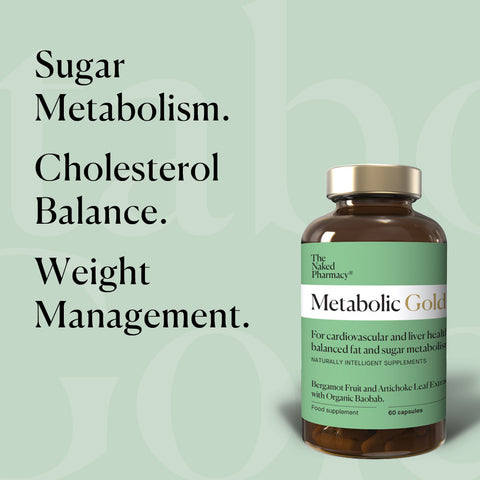Bergamot - Natural protection for cardiovascular health
Fragrant, floral and too bitter to eat, bergamot is certainly a lesser known member of the citrus family. But that’s not to say that the bergamot doesn’t have its own set of unique and incredibly useful qualities.
A brief history of Bergamot: the first bergamot gardens were planted during the 1860’s in Calabria, Italy, in the infancy of the unification of the Italian state.
Surrounded by the microclimate countryside above Sicily, close to the Mediterranean, bergamot oil is exclusive to the region and like Champagne, isn’t found anywhere else in the world. Most orchards are situated between Reggio Calabria and Locri due to the bergamot tree’s high sensitivity to pedoclimatic conditions. The region’s warm climate facilitates the growth of the distinctive oil on the skin of the fruit.
Thanks to its use within expensive perfumes, bergamot oil soon became an expensive commodity and the orchards in Italy became incredibly sought after.
But the fruit also soon became renowned for its medical properties. Wealthy Europeans wore pomanders infused with bergamot scent to ward off fevers and locals used the oil as a general health tonic and a remedy for clogged arteries and heart problems.
Nowadays, bergamot flavouring is used in food and drink and cosmetics, as well as perfumes and aromatherapy products.
The Health Benefits of Bergamot
The most exciting thing about the bergamot is its potential to improve cardiovascular health.
Bioactives found in the bergamot are the key to cardio-vascular developments. The combination of its polyphenols; Naringin, Neohesperin, Brutelidin and Melitidin creates the precise health benefits that aren’t present in other citrus fruits. These polyphenols, exclusive to Calabria, are specifically effective at reducing levels of bad fats and cholesterol.
What does the research say?
Clinical studies have shown encouraging results for bergamot being used as a supplement connected to cardio-vascular conditions. One trial concluded that 200 patients with high levels of fat in their blood saw a 39% decrease in bad cholesterol, a 41% boost in good cholesterol and a 22% decrease in blood sugars after taking bergamot for a month.
What's more, there weren’t any evident side-effects reported by patients.
Fatty deposits in the liver are also shown to reduce when taking bergamot extracts. Another study of 107 patients living with metabolic syndrome and “fatty” livers showed an improvement in liver health as well as a positive impact on cholesterol levels, lipid particle characteristics and blood sugar levels, while taking bergamot for 120 days.
The International Journal of Cardiology featured a study in 2013 that proved when 77 patients took 1000 milligrams of bergamot extract everyday for over a month, their cholesterol dropped from an average of 278 milligrams per decilitre of blood to 19.
How does Bergamot have this effect?
We think you’ll agree that the research shows some really positive signs for the bergamot and cardio-vascular health — but how does it work? Essentially, the unique polyphenols found in the bergamot attach themselves to the bad fats found in the gut.
This makes it much easier for the body to excrete the fats, ultimately preventing them from entering a person’s circulatory system. Polyphenols are also fantastic sources of antioxidant, which is important for overall heart health and removes toxins from the body.
Typically, statins cooperate with liver enzymes to restrict the decrease of CoQ10 and in fact, bergamot polyphenols carry out a similar function – they alter how the liver interprets the fats and end up following a similar process to statins.
The great thing is that the bergamot polyphenols also interact with these fat-processing enzymes, without counteracting the work of any other medicine being taken. This means that statins can be effective at a lower dose, when they work in conjunction with a bergamot extract.
Statins side-effects
Being able to take a lower dosage of statins, but still experience the cardio-vascular benefits of the medication is important for patients that suffer from side effects, which is thought to be one in ten people.
Common side effects include:
- Headache
- Dizziness
- Feeling sick
- Feeling unusually tired or physically weak
- Digestive system problems, such as constipation, diarrhoea, indigestion or excess wind
- Muscle pain
- Sleep problems
- Low blood platelet count
Muscle-related problems are the most frequently reported side effects of statins. The risk of myopathy (muscle pain) is increased with all statins and is known to be dose dependent, the higher the dose the greater the risk of muscle pain. This risk increases when certain medicines are used together with statins, either because both medicines can cause myopathy or because the second medicine increases the amount of statin in the blood. It is important that any muscle pain associated with statin use is treated seriously and reported to your GP quickly.
Creatine kinase (CK) is often used to establish the extent of muscle damage including myopathy, CK is raised in response to muscle damage. A visit to your GP for a test to establish the level of CK in the blood will be performed and the outcome of this test will determine if it is suitable for the statin to be continued or not. A CK result that is 5 times higher than the normal upper means that statin should be stopped and not restarted, even at a lower dose.
For any patient that experiences muscle aches as a result of statin therapy, the introduction of bergamot extract could enable similar cardiovascular benefits whilst taking a lower statin dose and reduce the risk of limiting muscle pain and weakness. Metabolic Gold can safely be taken alongside statin treatment.
We’d always advise you to consult with your GP before you change a statin dosage, to talk through all of your options and the consequences.
Let’s talk about the rise in Cardio-Vascular Diseases
Worryingly, the British Heart Foundation’s research has found that heart and circulatory disease deaths in under 75's has seen its first sustained rise in 50 years, with the number of deaths caused by heart and circulatory diseases in under 65s on the rise too.
There’s been a slowing of progress and a higher risk because of more widespread conditions like high blood pressure and diabetes. Another alarming development has seen obesity levels in the UK more than treble in the last 30 years.
It’s difficult to pinpoint the exact reasons for this rise and as with any set of statistics, there are a range of contributing factors. Cardio-vascular issues can be caused by eating fatty foods, not exercising enough, being overweight/obese, smoking and drinking alcohol. And there are many hereditary conditions too.
Bergamot Fruit Benefits
If you are considering a bergamot supplement, you have to find one which has a fruit extract that isn’t taken from the peel (which is generally cheaper).
Equally important is the 38-47% strength, premium-grade bergamot fruit extract (BPF) from Reggio Calabria, the best region for growth because of the unique microclimate and soil conditions. This region is the only place that can nurture a fruit with the correct strength to combat fatty liver, cholesterol and help with weight issues.
The Science Part
Calabrian-grown bergamot has 4 key polyphenols: Naringin, Neoesperidin, Melitidine and Bruteridin. These are the main active components of the bergamot fruit extract that make it so uniquely beneficial.
It’s these five plant components that are focused in Calabrian bergamot – all extracts must have a minimum strength of 38- 47% to give them as much effectiveness as possible. In our production process we use extracts from six bergamot fruits for each tablet, so you are taking exactly the right levels to enhance health benefits.
As we mentioned, polyphenols are really effective antioxidants, as they activate the proteins that challenge and break down fatty acids and glucose, which balance blood sugar levels and can help with managing weight too. This is because the polyphenols bind to fats released from food within the gut.
How to select an effective Bergamot Brand?
In most bergamot supplements, the polyphenols levels are significantly less than 25% and are without the key polyphenolic plant actives that Calabrian bergamot extract has. This means that though the product may be cheaper, it’s ineffective.
Consider Metabolic Gold, our bergamot supplement. Metabolic Gold is a safe and effective natural supplement that uniquely contains highest strength, premium grade bergamot fruit extract (BPF) from Reggio Calabria, Southern Italy, in combination with high strength olea europaea leaf extract, vitamin C, chromium and alpha linoleic acid.
For best results, we recommend adults take two tablets a day, 30 minutes before a meal.
If you need any advice on a current health concern or want to chat with us about staying healthy this season, you can call us on (+44) 01483 685 630 Mon - Fri 9am - 5pm for advice. One of our friendly Pharmacists will be happy to help.







